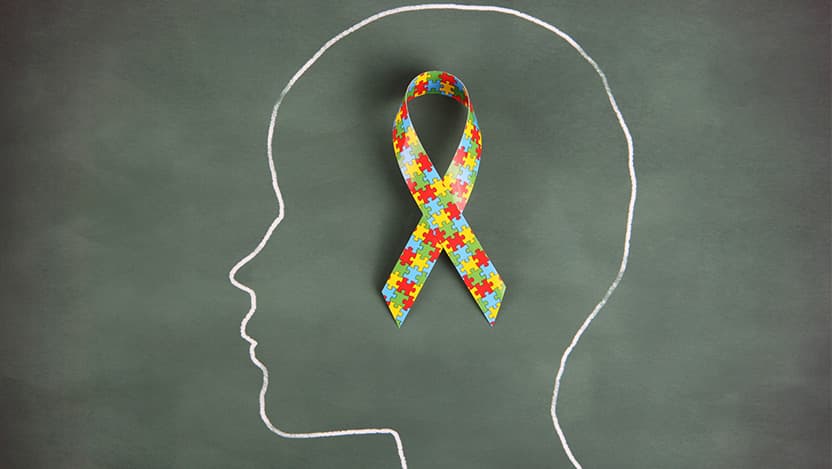Jumpstarting to Independence: A creative solution to improve equity in Applied Behavior Analysis therapy for children with Autism Spectrum Disorder

Children diagnosed with Autism Spectrum Disorder (ASD) often benefit from a type of therapy called Applied Behavior Analysis (ABA). ABA can help patients with common challenges of ASD, such as noise sensitivity, communication, attention and daily activities.
ABA therapy is generally delivered in a one-on-one or group setting — typically in the family home, an ABA therapy center or school — to support children with ASD and help work through challenges. Prior research has shown that for patients with ASD, ABA therapy has positive results. Despite the evidence-based effectiveness of ABA therapy, in the state of Illinois, barriers exist for children insured by Medicaid, leading to disparities in care for ASD.
The Jumpstarting to Independence program at the University of Chicago aims to reduce this disparity.
Many children with ASD who have private insurance receive intensive, individualized ABA therapy in their homes (with the recommended intensity of 25 hours per week). With these intensive therapies, children may learn to communicate more effectively, show improvement in behavior and adaptive skills, and parents may feel more confident in their skills in supporting their child’s needs. However, patients with ASD without private insurance may have a hard time accessing these resources, leaving them without the proper tools to navigate challenges.
“It has always been a problem that children with Medicaid, who have autism, are not able to get recommended evidence-based therapy, and unfortunately, it just became an accepted reality of our practice,” says Sarah Sobotka, MD, MSCP, Assistant Professor of Pediatrics and Developmental and Behavioral Pediatrician.
Additional members of the Jumpstarting to Independence program team include Board Certified Behavior Analyst Zhihui (John) Yi, BCBA, Registered Behavior Technician Kelly Lewis, RBT and senior clinical research coordinator Emma Lynch, MPH.
Jumpstarting to Independence, which launched in March of 2024, is approximately a two-month, short-term therapy program for patients who have not had the opportunity to receive ABA therapy outside of school before. Parents will complete education modules online in-between visits with the BCBA in clinic.
“We’re really breaking the mold of typical therapy programs, which are often weekly,” Sobotka said. “We value that parents are the core deliverer of therapy to their kids through daily activities and engagement. The clinical research protocol is largely a parent education tool.”
The education modules are self-paced and allow for parents to strategize when they are ready to move forward with the next module.
Sobotka and the Jumpstarting to Independence team hope to serve about 100 patients each year. The program will also give medical trainees the opportunity to observe therapists working with patients with ASD.
“This innovative model addresses a disparity in patients with ASD who are not receiving therapies because of their insurance coverage,” Sobotka said. “It also empowers parents to learn skills so they can continue the hard work in their homes.”

Sarah Sobotka, MD, MSCP
Sarah Sobotka, MD, MSCP, is a developmental and behavioral pediatrician. Dr. Sobotka's areas of expertise include developmental delays, disabilities and medical complexity in children.
Learn more about Dr. SobotkaDevelopmental and Behavioral Pediatrics
Our developmental and behavioral physicians are highly skilled subspecialists with fellowship training in developmental and behavioral pediatrics, neurodevelopmental disabilities and pediatric advocacy.
Learn more about our developmental and behavioral team